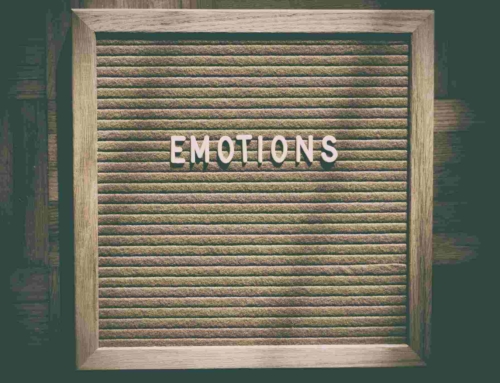Human relationships are quite fascinating, but they can also be complicated. They bring us a lot of joy, whether they are between parents and their children, siblings, lovers, or even colleagues and neighbors. The flipside of the deep joy and fulfillment that comes from our relationships is the reality of frustration and heartache that often flows from relating to those closest to us.
Because we mess up, and the people we interact with also mess up, there are bound to be things we need to ask forgiveness and forgive others for. It may be a betrayal of trust, a loved one being taken for granted, commitments that are unmet and so much else.
Forgiveness is itself radical
 When we talk about “radical forgiveness,” it can mask the fact that forgiveness itself is a radical thing to do in our relationships. When someone wrongs us, there may be something within us that wants them to feel the pain we feel, to hurt the way we hurt. We might even want to hold their action against them and withhold affection or warmth from them until we feel they’ve suffered enough.
When we talk about “radical forgiveness,” it can mask the fact that forgiveness itself is a radical thing to do in our relationships. When someone wrongs us, there may be something within us that wants them to feel the pain we feel, to hurt the way we hurt. We might even want to hold their action against them and withhold affection or warmth from them until we feel they’ve suffered enough.
So, standing against this all-too-human impulse to pay back as good as we got is counterintuitive. If the slight we’ve endured is small or part of a daily pattern of behavior from another person, then it becomes even more challenging for us to forgive their lack of consideration and daily provocations.
What forgiveness is and isn’t
Forgiveness can be hard to do, but it can be made even harder by misunderstanding what forgiveness is. If you understand forgiveness as giving someone a pass and letting them off the hook by saying “it’s okay”, that can rightly offend our sensibilities because what the other person did certainly isn’t and does not feel “okay.”
When we forgive someone, we’re not saying what they did was okay, nor overlooking their behavior as a minor inconsequential blip. It’s the opposite. When we forgive someone, we see the horrible thing that they did in all its ugliness, and we choose not to hold it against them, making a concerted effort to kill any resentment or desire to humiliate or retaliate.
Forgiveness is needed precisely because the person did something wrong that cannot be excused. We forgive inexcusable things. C.S. Lewis, who wrote on a variety of topics touching on the Christian life, said, “To excuse what can really produce good excuses is not Christian charity; it is only fairness. To be a Christian means to forgive the inexcusable, because God has forgiven the inexcusable in you.”
 Forgiving someone doesn’t mean that there are no consequences for their actions. For instance, if someone repeatedly breaks their promises to you, or they continue to share your confidences with others, you can forgive them, but that doesn’t mean that they are still your close confidante or that you continue to believe their promises.
Forgiving someone doesn’t mean that there are no consequences for their actions. For instance, if someone repeatedly breaks their promises to you, or they continue to share your confidences with others, you can forgive them, but that doesn’t mean that they are still your close confidante or that you continue to believe their promises.
If someone commits a crime against you, forgiving them does not mean that the law should not take its course. Forgiveness is primarily about your disposition toward the person – whether in your heart you harbor resentment, hate, or the desire for revenge.
Forgiveness is more than just a single apology that brings relief from guilt. It is a journey that takes more than a single instant – it can take a lifetime. Sometimes people may feel that they can’t forgive or that they haven’t forgiven someone because they still have feelings of resentment and they can’t quite forget what happened.
Forgiving someone isn’t like flipping a switch and then you’re over it like that. At times you must wrestle daily with those feelings of resentment and the desire to hurt the person who hurt you. Forgiveness is an act of the will, a choice we must make daily. On some days, the choice is easy to make and follow through with, and on other days it’s hard to hold the line at all.
Stories of radical forgiveness
 Forgiveness in our own lives may be absent or a struggle, and so it always helps to see the lives of others, which may be an encouragement to us. This is so whether we are struggling to forgive something that was done to us, or if we think we can’t even ask for forgiveness because what we did was too big and too terrible to ever forgive.
Forgiveness in our own lives may be absent or a struggle, and so it always helps to see the lives of others, which may be an encouragement to us. This is so whether we are struggling to forgive something that was done to us, or if we think we can’t even ask for forgiveness because what we did was too big and too terrible to ever forgive.
One example of radical forgiveness is Corrie ten Boom, who was a Dutch Christian and a holocaust survivor. During the second world war, she and her family hid Jews who were fleeing from the Nazis. Eventually, they were caught and were sent to a concentration camp. There, Corrie’s sister died just days before the camp was liberated.
Sometime later, after Corrie had spoken in a church, she was greeted and spoke to a man who had been a guard at the concentration camp that Corrie and her sister were held in. She agonized over the very thought of shaking this man’s hand, and she simply couldn’t do it in her own strength.
She asked God for his help so she could forgive him, or the strength to shake his hand. In that moment she was granted that strength, but it was only the beginning of the process of forgiveness.
Another example of radical forgiveness can be found among Rwandans who are living in reconciliation villages where perpetrators and survivors of the 1994 genocide live together, or in everyday people who live as neighbors with perpetrators. The genocide was carried out by people who knew one another and were neighbors.
Forgiving those who took part in the genocide isn’t a single step or one that everyone has taken – many widows and orphans understandably continue to this day to struggle with forgiving the perpetrators. Forgiveness in this context for many hasn’t meant that things have gone back to the way they were before the genocide, that neighbors now relate to one another with warmth as before.
To have that kind of relationship would require trust, and that trust has been broken. While the genocide is still a source of anguish, forgiveness for many in Rwanda looks like coexisting with others, having let go of the desire for revenge or getting even.
Finally, we can look at a story in the Bible, from when Jesus was on the cross after having been unjustly condemned and crucified. While people came up to him and jeered, mocked, and hurled insults at him, Jesus prayed “Father, forgive them, for they do not know what they are doing.” (Luke 23:34).
 Instead of lashing out as any of us would likely have done (he was on the cross, dying to liberate them and us from sin, and they were mocking him!), he prayed that they would be forgiven. He does not ask God to spurn or destroy them, but that they would be forgiven.
Instead of lashing out as any of us would likely have done (he was on the cross, dying to liberate them and us from sin, and they were mocking him!), he prayed that they would be forgiven. He does not ask God to spurn or destroy them, but that they would be forgiven.
This lack of resentment and goodwill toward those who are causing harm is challenging, to say the least. It certainly sets a high bar for us when we read elsewhere in the Bible, “Be kind and compassionate to one another, forgiving each other, just as in Christ God forgave you.” (Ephesians 4:32)
Forgiveness is challenging
There is no doubt that forgiving others is a tough task. It requires us to set aside our instinctual reaction and desire for revenge and to choose to let go of resentment and ill-will toward the person who hurt us. Forgiving others is tough, but forgiveness is about us more than it is about the person we are forgiving.
If we choose not to forgive, the bitterness and resentment that wells up inside us deprives us of our sense of peace and even causes health problems such as high blood pressure, hypertension, and a weakened immune system due to stress. While forgiveness is a difficult and long road, walking it is the path toward peace and freedom from resentment and revenge.
“Country Road”, Courtesy of Luca Bravo, Unsplash.com, CC0 License; “Broken Heart”, Courtesy of Kelly Sikkema, Unsplash.com, CC0 License; “Flowers of the Field”, Courtesy of Kien Do, Unsplash.com, CC0 License; “Overwhelmed”, Courtesy of Jukan Tateisi, Unsplash.com, CC0 License









